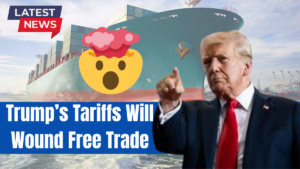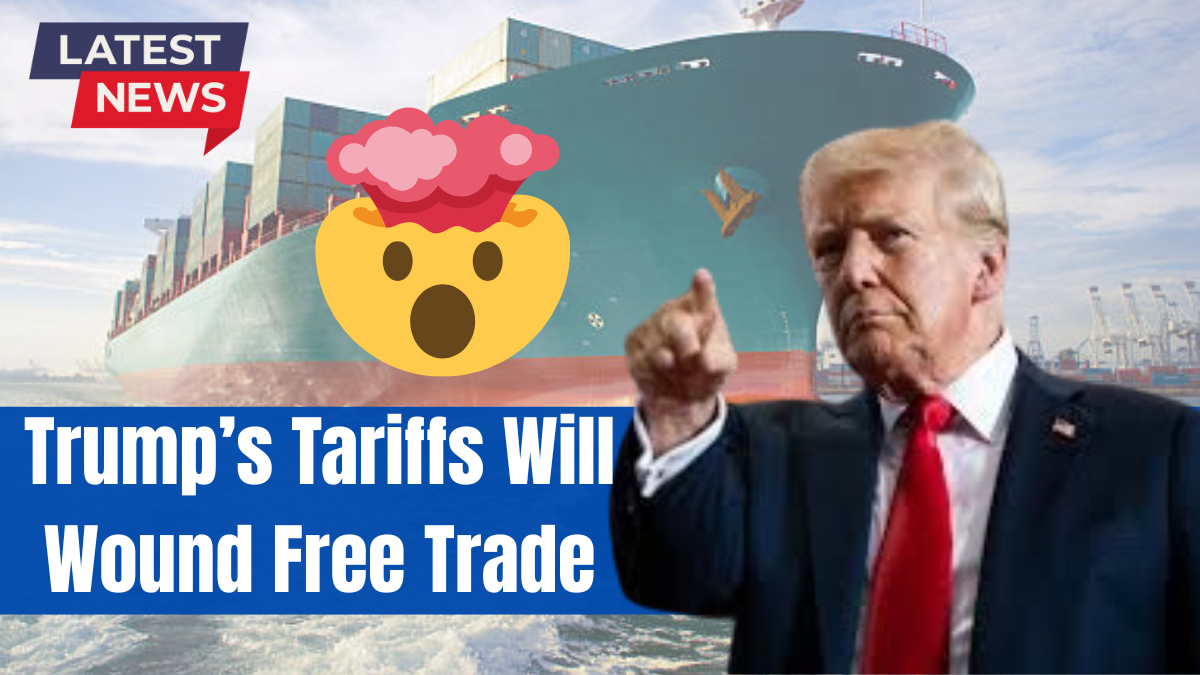President Donald Trump’s sweeping announcement of tariffs on over 100 countries has sent shockwaves through the global economy. Labelled as a “liberation day,” this move resembles the disruption caused by Brexit — Britain’s decision nearly a decade ago to leave the European Union. Both events reflect a broader trend of countries stepping back from multilateral trade systems in favor of national economic control.

Echoes of Brexit in Trump’s Tariff Decision
Like Brexit, Trump’s tariffs are framed as an act of economic sovereignty. But while the UK focused on its relationship with Europe, Trump’s move isolates the United States from a vast network of global trade. Economists say the long-term impact of this action remains uncertain. If markets plunge or international pressure mounts, Trump could reverse his stance or renegotiate deals.
Despite this uncertainty, experts note that the foundations of free trade remain strong. Even if the US pulls back, other global players may work to uphold the system.
Is Free Trade Still Viable Without the US?
Cornell University’s Eswar Prasad believes the world may adjust by promoting free trade independently of American leadership. “The reality is, it’s going to be every country for itself,” Prasad said. Much like post-Brexit Europe, global markets may experience years of turbulence before stabilizing. In this fractured environment, bilateral trade deals could become the new norm.
Rising Risks of Trade Wars
History shows that trade disputes can escalate into larger conflicts. The War of 1812 and the Opium Wars are just two examples of economic disputes spiraling into military confrontation. A full-scale trade war between the US and China, both superpowers with existing tensions, could dangerously intensify their geopolitical rivalry.
While President Trump hasn’t taken military steps, his confrontational stance — especially toward allies like Canada and Mexico — has shaken global confidence. Countries might adopt conflicting strategies, with some negotiating new terms and others retaliating through tariffs.
Retaliation and Realignment
China has already responded to Trump’s latest tariffs with retaliatory duties of 34 percent. The European Union, meanwhile, is cautioning members against redirecting goods previously bound for the US into its markets. British Prime Minister Keir Starmer, facing a 10 percent US tariff, has expressed willingness to strike a deal.
Economists emphasize that many countries rely heavily on the US market — a massive consumer of German cars and Chinese electronics. Shifting away from such a major trading partner will be challenging.
A Shifting Economic Landscape
Though the US is still central to global trade, its position as the key growth engine may weaken as countries diversify. If others come together to forge new alliances, they might sustain the momentum of trade liberalization without Washington.
Conclusion
Trump’s tariffs have undoubtedly marked a retreat from global trade cooperation, echoing historical moments of economic nationalism. However, the resilience of the free trade system and the global interdependence of modern economies suggest that while wounded, free trade may not be permanently derailed. The coming months will reveal whether the world adapts or fragments further.
FAQs
What are Trump’s new tariffs about?
President Trump announced tariffs on over 100 countries, aiming to boost American manufacturing and reduce dependency on foreign imports.
How do these tariffs compare to Brexit?
Both are seen as moves toward economic independence, but Trump’s tariffs affect global trade on a larger scale than Brexit did.
Will this end global free trade?
Experts believe free trade will survive but become more regionalized, with countries striking individual deals rather than relying on a global framework.
How is China responding?
China has imposed a 34% retaliatory tariff and may collaborate with neighboring countries like Japan and South Korea for broader impact.
What should other countries do?
Nations must either negotiate with the US or seek new trade alliances to adapt to the shifting economic environment.
Click here to know more.
Aanchal is a passionate writer with a keen interest in storytelling, content creation, and creative expression. She enjoys exploring diverse topics and crafting engaging narratives that captivate readers.

